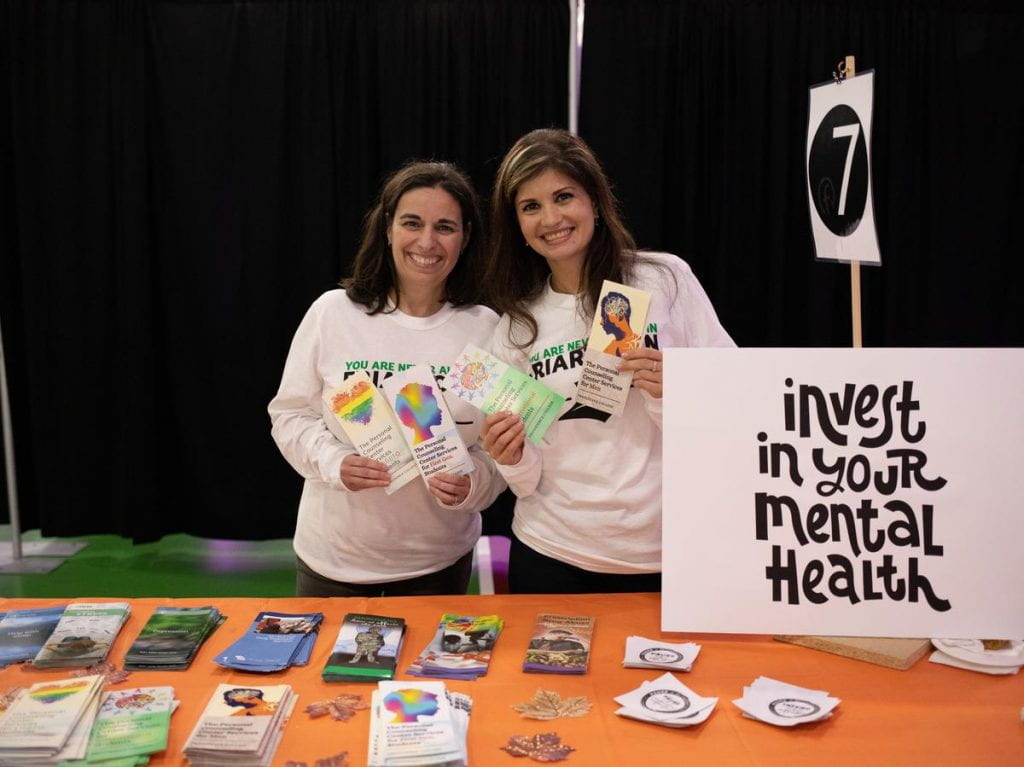Personal Counseling Center increases resources for students’ mental health needs during COVID

By Liz F. Kay
Providence College’s Personal Counseling Center has added new services and created new initiatives to address the mental health needs of students due to the COVID-19 pandemic.
“The pandemic has impacted so many aspects of students’ lives, and the Personal Counseling Center is here to help them,” said Dr. Rosemary Fernandes Mugan ’98, staff psychologist and counseling center director.
Many anticipated that the demand for mental health services would increase significantly during this pandemic period, but Mugan said referrals to the center in the fall 2020 semester decreased. However, when students did reach out for help, the challenges they were experiencing were more acute.
With fewer referrals, counseling center staff took the opportunity in the fall to do more outreach. They discussed the services the center offers in first-year experience classes for undeclared students and first-year advising classes for PC School of Business students. They also participated in panel presentations for the Board of Programmers and PC’s Homecoming celebration in October. In addition, they used social media to try to reach new audiences, sharing quarantine and isolation tips through a “Counselor’s Corner” feature on the Division of Student Affairs’ @PCFriarLife Instagram account.
As the pandemic stretched into the spring 2021 semester, the number of visits began to trend upward. “Now that it’s spring, we can feel the intensity,” Mugan said. “More people have recognized, ‘I have to figure out how to survive this.’”
Counselors can offer telehealth appointments to students, but one of the challenges is staying connected to students who may be attending classes remotely, she said. Each state has different licensing laws for mental health professionals, and although some may have relaxed requirements due to COVID, others have not. PC counselors still encourage remote students to contact the center to help them reach resources in their home states if necessary.
Overall, more and more students are accessing the counseling center’s services every year. When Mugan started as director about five years ago, only about 15% of undergraduates used the center. Now, that proportion is closer to 20%, she said. Of the Class of 2020, 47% accessed the center’s services at some point during their four years on campus.
Some of the ways that the Personal Counseling Center is addressing the needs of students include:
- 24-hour crisis counseling: The College has contracted with ProtoCall Services to provide more immediate access to crisis counseling for students at night and on weekends, including those in quarantine or isolation. They also help victims of sexual assault. If needed, students can call the counseling center after hours and get connected to counselors at call centers across the country. “It’s a way to access immediate counseling, even if you’ve never been to the counseling center,” Mugan said. ProtoCall’s counselors are educated on PC resources, staffing, and procedures and provide reports on every call by the next business day so PC’s counselors can provide follow-up care for those students. Personal Counseling Center staff are still on call on nights and weekends if students are experiencing an emergency that requires medical care at a mental health facility in the area.
- Virtual support group for students in quarantine and isolation: Once a week, students in quarantine and isolation can meet with counselors to assist each other during these periods. Students also can connect with counseling center staff individually.
- Affinity groups for students who identify as BIPOC as well as white allies: Center staff are working with PC employees in other areas to work on issues related to racial justice. The BIPOC group creates a safe place for connecting around experiences they might share from times in college or earlier. The group may share resources and practice coping skills. White students are discussing how to be agents of change, educate peers, and partner as solid allies for the BIPOC community.
- Campus-wide public health initiative: The center is working on a public health campaign to encourage all students to do what they can to bolster their holistic health and wellness. Some of the outreach will reach targeted populations, such as men, to overcome stigma over mental health care. Only about one-third of students who use the counseling center identify as male, Mugan said. However, “we see male students overrepresented in other categories in experiencing other mental health crises,” said Mugan. The goal is to normalize self-care for all in a way that incorporates mental health and wellness, not just physical health, she said.





